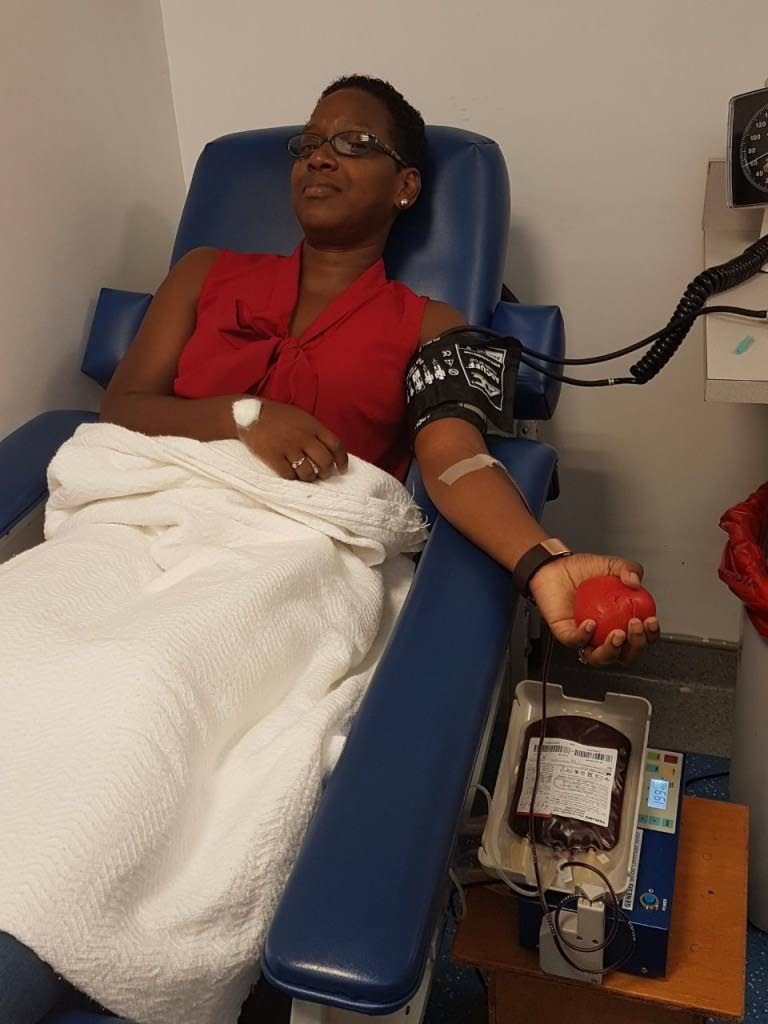Give blood not only to people you know

WE should all share life freely and frequently without expecting anything in return, and abandon the ideology and practice of giving blood only for people we know, says chief medical officer (CMO) Dr Roshan Parasram.
Parasaram was speaking at the Eric Williams Medical Sciences Complex, Champs Fleurs, on Friday at a one-day symposium titled Safe Blood For All in commemoration of World Blood Donor Day.
It was hosted by the University of the West Indies (UWI) Blood Foundation and the North Central Regional Health Authority. Their target is to improve on the 20,000 units of blood collected from the public yearly, which only accounts for about one-third of the amount needed for an adequately stocked blood bank.
"Whenever blood donation is discussed, you may hear the same terms being repeated. You may wonder what is meant by ‘voluntary, altruistic, non-remunerated blood donation,’ or true voluntary blood donation. It simply means giving blood freely and often, expecting nothing in return," Parasram explained.
"When you become a true voluntary blood donor, you are not just giving blood, you are sharing life. We all should share life freely and often by donating blood at least two times per year, every year, expecting nothing in return; no money, no chit, no credit, no extra time off except what you need to give blood and share life.
He urged citizens to become true voluntary blood donors and to do their part "to create a national blood system that will ensure that our loved ones who are in need can readily access blood."
World Blood Donor Day has been celebrated by the World Health Organisation's (WHO) member states annually since 2004. It is intended to recognise and celebrate those who donate blood for altruistic reasons.
"We are celebrating the voluntary, unpaid blood donors who are saving lives through their gifts of blood," said Parasram.
He said more TT citizens need to become regular and voluntary blood donors, adding that regular blood donations create a solid base for a sustainable blood supply, making it possible to meet the transfusion needs of all patients.
"A consistent and dependable blood supply is needed for almost every area of medical practice. From pregnancy and childbirth associated bleeding, advanced medical and surgical procedures, to treatment for patients with blood disorders and for traumatic injuries in emergencies, disasters and accidents – blood is need for many medical interventions.
The WHO recommends member states collect one unit for every 20 citizens annually.
"We are appealing therefore, to all persons who are eligible to donate blood to do so. TT needs more voluntary blood donated to ensure that we have enough when we need it.
Only 62 WHO member states get close to 100 per cent of their national blood supplies from voluntary unpaid blood donations, while 40 countries, including TT, are still dependent on family donors and even paid donors.
The UWI Blood Donor Foundation is led by chairman Dr Kenneth Charles, who has been lauded by stakeholders for his leadership of the organisation, which has resulted in a steady rise in the number of units collected through the foundation's numerous blood drives.
How to donate voluntarily
People between 18 and 65 who are in good health and weigh more than 110 pounds can become true voluntary blood donors.
Most blood collection centres are now open on Saturdays, in addition to the regular Monday-Friday opening times.
A single blood donation can save up to three lives.
There are six centres at the major hospitals across the country, and the Friends of the Blood Bank Association runs a mobile unit.

Comments
"Give blood not only to people you know"